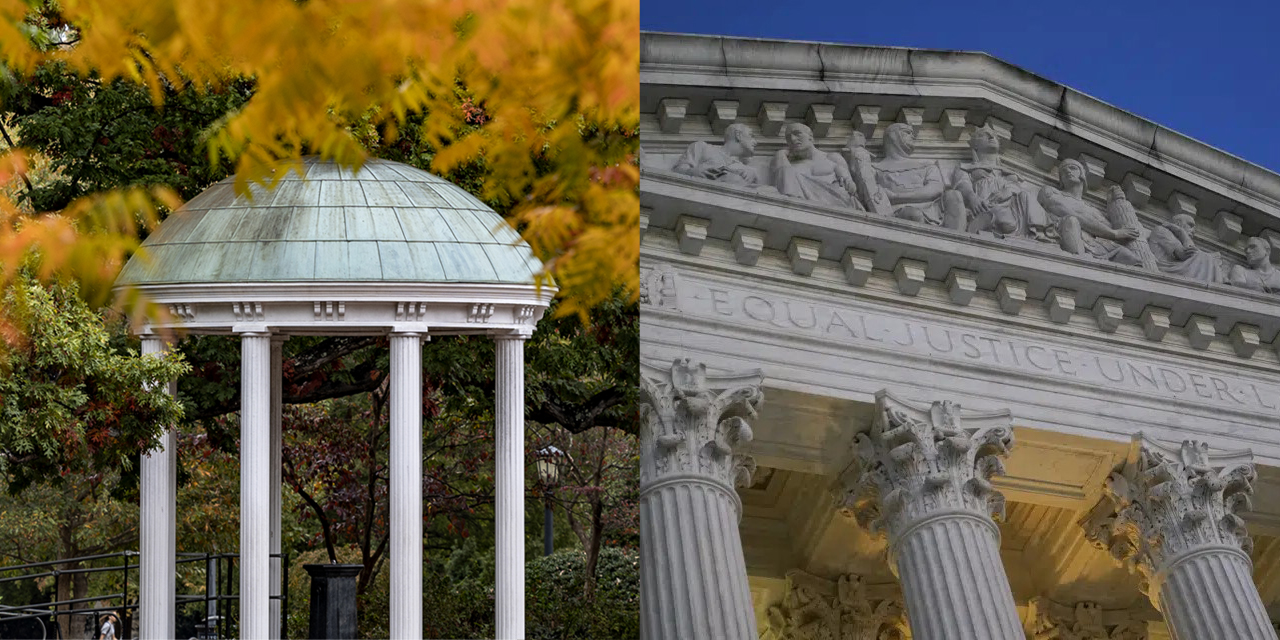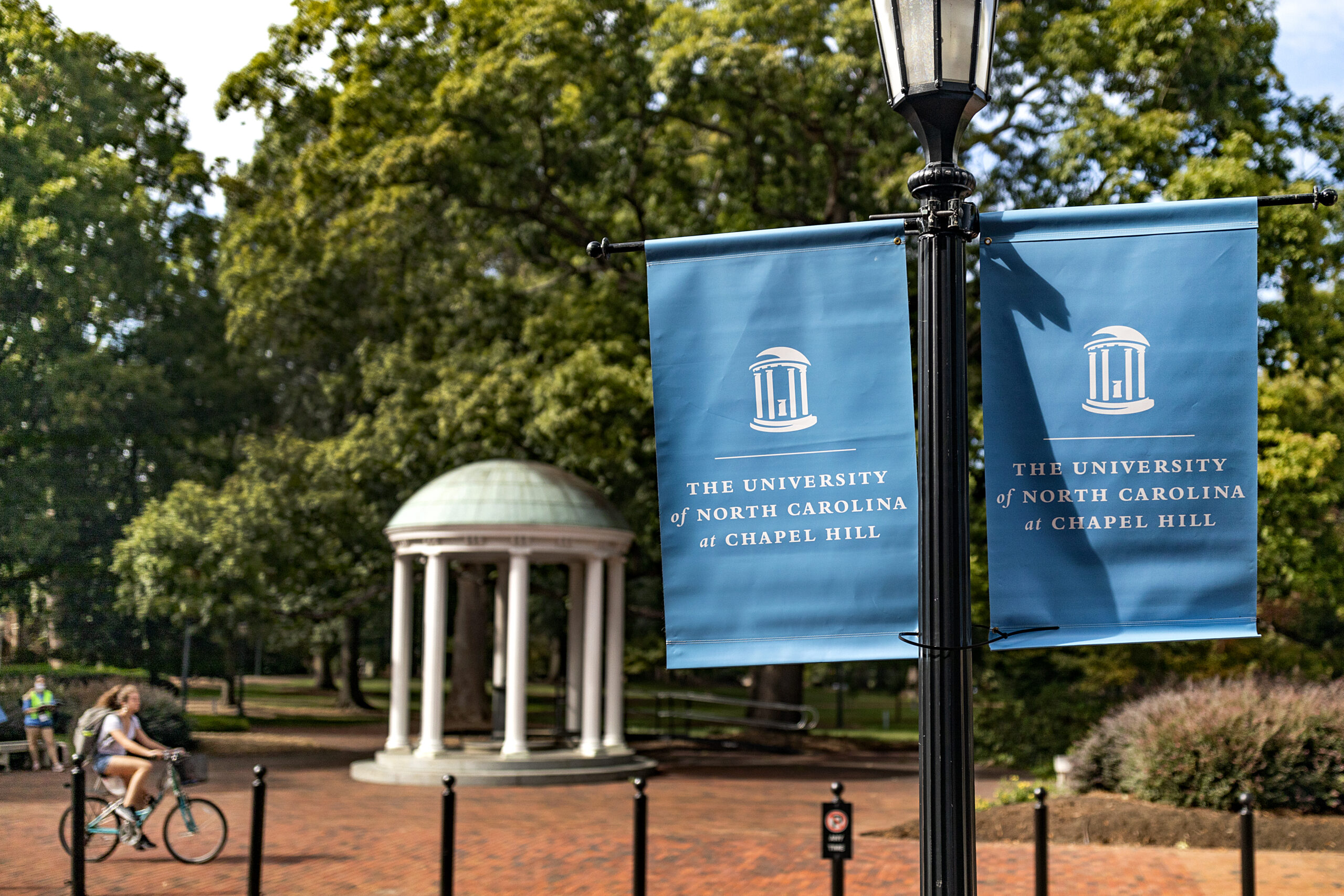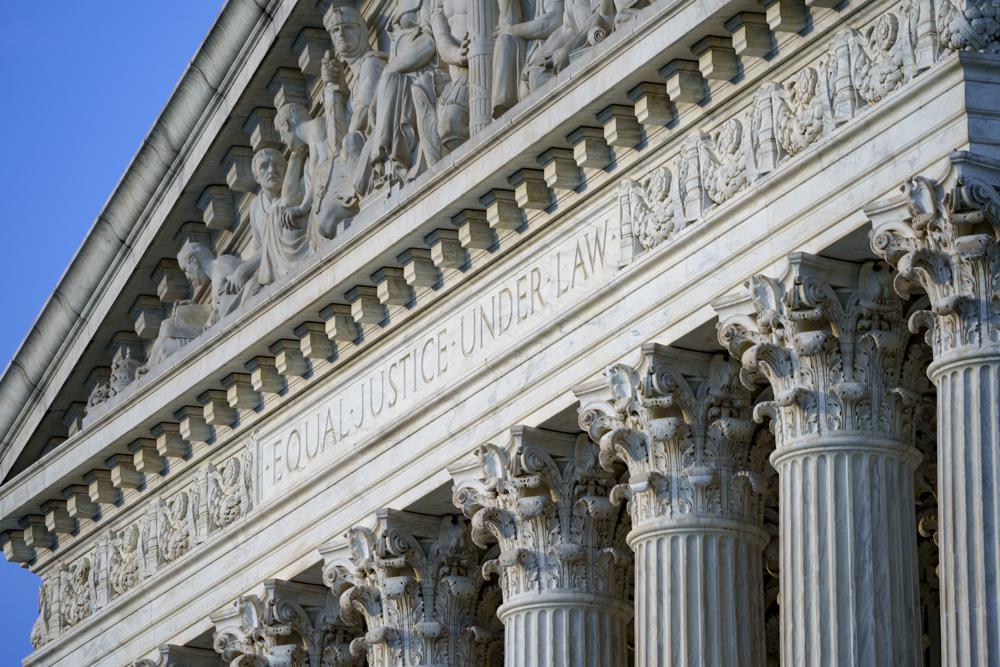The U.S. Supreme Court announced its ruling in Students for Fair Admissions v. the University of North Carolina on Thursday, effectively ending decades of the practice of affirmative action in college admissions and a nearly ten-year lawsuit against the Chapel Hill school.
The court’s conservative majority led the ruling that UNC’s, and Harvard’s in a separate lawsuit, admissions programs violate the equal protection clause of the 14th Amendment when they use race-based considerations to determine a student’s application. The ruling overturned the precedent set in the Supreme Court’s Grutter v. Bollinger case from 2003, where a split bench ruled that the University of Michigan Law School could lawfully consider race in student applications to strive for diversity. Affirmative action strategies in admissions were upheld in two other cases since then — in 2013 and 2016 — but that was prior to the current makeup of the court, which saw three justices added to the bench by former President Donald Trump.
Students for Fair Admissions filed its suit against UNC in 2014, seeking no monetary damages from the university, but instead attempting to force a change in the school’s admissions policy and overturn the Supreme Court’s precedent around affirmative action. Through the course of the lawsuit, UNC argued its admissions practices are holistic and only use race as part of its consideration for undergraduate and professional school applicants. The university also has stated that any race-neutral alternatives would not allow it to achieve its diversity goals for the campus community. A trial court ruled in favor of UNC in October 2021 before Students for Fair Admissions appealed the ruling and the case was accepted by the Supreme Court in January 2022.
The official votes shared Thursday were 6-3 in the UNC lawsuit and 6-2 in the Harvard case. Justices Sonia Sotomayor, Elena Kagan, and Ketanji Brown Jackson were in the dissent, with Jackson recusing herself from a vote in the Harvard case since she is an alumna.
Chief Justice John Roberts delivered the opinion of the court, stressing that a key factor in the court’s Grutter decision was that race-based considerations would eventually have an end date.
“Twenty years later, no end is in sight,” he wrote. “Harvard’s view about when [race-based admissions will end] doesn’t have a date on it Neither does UNC’s. Yet both insist that the use of race in their admissions programs must continue. But we have permitted race-based admissions only within the confines of narrow restrictions. University programs must comply with strict scrutiny, they may never use race as a stereotype or negative, and — at some point — they must end. Respondents’ admissions systems — however well intentioned and implemented in good faith — fail each of these criteria. They must therefore be invalidated under the Equal Protection Clause of the Fourteenth Amendment.”
“In other words,” Roberts wrote later, “the student must be treated based on his or her experiences as an individual—not on the basis of race. Many universities have for too long done just the opposite. And in doing so, they have concluded, wrongly, that the touchstone of an individual’s identity is not challenges bested, skills built, or lessons learned but the color of their skin. Our constitutional history does not tolerate that choice.”
In her dissent, Jackson said she sees the decision as a “tragedy” for the country as it endorses a “‘colorblindness for all’ by legal fiat.” She argued that because UNC’s admissions process does not require racial information and instead simply permits it, the school treats race as a defining part of one’s identity, but not the entire applicant’s identity.
“Holistic programs like UNC’s reflect the reality that Black students have only relatively recently been permitted to get into the admissions game at all,” Jackson wrote. “Such programs also reflect universities’ clear-eyed optimism that, one day, race will no longer matter.
“Given the lengthy history of state-sponsored race-based preferences in America,” she added, “to say that anyone is now victimized if a college considers whether that legacy of discrimination has unequally advantaged its applicants fails to acknowledge the well documented ‘intergenerational transmission of inequality’ that still plagues our citizenry. It is that inequality that admissions programs such as UNC’s help to address, to the benefit of us all. Because the majority’s judgment stunts that progress without any basis in law, history, logic, or justice, I dissent.”
Oral arguments for the case took place on October 31, at which time the conservative justices questioned whether race-based admissions practices would have an end date or could be considered a “zero-sum” approach to campus diversity. In a media gathering afterward, UNC Chancellor Kevin Guskiewicz said his experience as a professor and administrator points the other way. He said he gets a clear view of how racial diversity cultivates better experiences for students.
“I’ve been on the front row of this,” Guskiewicz said at the time, “seeing the education benefits on a daily basis of this. And I think the vast majority of students I talk to welcome those opportunities they have in the classroom for diversity to allow them to grow and mature as those future civic leaders.”
Guskiewicz issued a statement Thursday morning about the ruling before sharing a longer message to the campus community, saying the outcome was not what the university hoped for but that UNC would “take any steps necessary to comply with the law.”
“Carolina is committed to bringing together talented students with different perspectives and life experiences and to making an affordable, high-quality education accessible to the people of North Carolina and beyond,” said the chancellor. “We are passionately public, and that will always be true. Our strategic plan’s first initiative is to “Build our Community Together.” We will build that community with you and work to provide a campus environment where all of our students know they belong and can thrive.
“I know that this decision may raise questions about our future and how we fulfill our mission and live out our values,” Guskiewicz continued. “But Carolina is built for this, and we have been preparing for any outcome. Our leadership team will need time to thoroughly review the details of this outcome and its potential impact before determining specifically how we will comply with this decision. In the coming weeks, we will communicate our plans with the campus community.”
Other representatives for UNC and the University of North Carolina System shared their own statements on the decision.
“On behalf of the people of our state,” said UNC Board of Trustees Chair David Boliek Jr., “we will work with the administration to ensure that the University of North Carolina at Chapel Hill complies fully with today’s ruling from the nation’s highest court. We intend for America’s oldest public university to keep leading.”
“We are closely reviewing today’s decision and will follow the law,” UNC System President Peter Hans said. “Our public universities do extraordinary work every day to serve students of all backgrounds, beliefs, income levels and life experiences. Every student in North Carolina should know that the UNC System welcomes their talent and ambition. The most important work of higher education is not in deciding how to allocate limited admissions slots at highly competitive schools, but in reaching and encouraging more students to take advantage of our 16 remarkable public universities.”
Rep. Valerie Foushee, who serves NC-04 and the UNC campus in Congress, released a statement from her office criticizing the Supreme Court’s conclusion and view of racial considerations.
“Today’s ruling is devastating and will dismantle the race-conscious admissions efforts to ensure that higher education is accessible to all students – especially Black students and students of color who are historically disadvantaged,” said Foushee. “Ending affirmative action in our colleges and universities is not only a step backwards in establishing a more equitable society, but the repercussions of this decision will be felt for generations. Diversity makes our nation stronger, and all students deserve equal opportunity to a quality education, regardless of their income or their racial and ethnic background.”
North Carolina Governor Roy Cooper also shared a statement criticizing the court’s decision.
Gov. Cooper Statement on Supreme Court’s ruling in UNC admissions case pic.twitter.com/e5bcSthgZL
— Governor Roy Cooper (@NC_Governor) June 29, 2023
The full opinion in Students for Fair Admissions v. the University of North Carolina can be read here.
Photos via Johnny Andrews/UNC-Chapel Hill and AP Photo/Patrick Semansky.
Chapelboro.com does not charge subscription fees, and you can directly support our efforts in local journalism here. Want more of what you see on Chapelboro? Let us bring free local news and community information to you by signing up for our biweekly newsletter.











